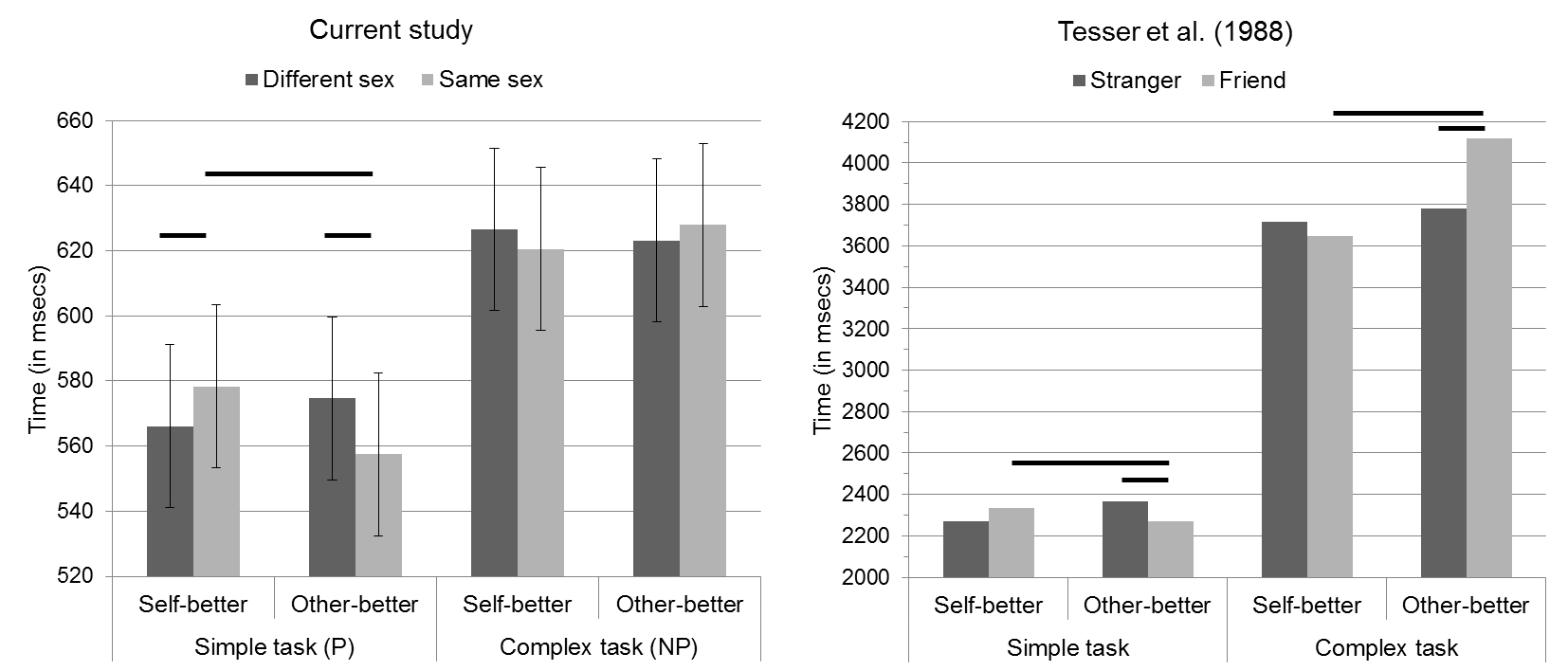Abstract: Comparing oneself with others is an important characteristic of human social life, but the link between human and non-human forms of social comparison remains largely unknown. The present study used a computerized task presented in a social context to explore psychological mechanisms supporting social comparison in baboons and compare major findings with those usually observed in humans. We found that the effects of social comparison on subject’s performance were guided both by similarity (same vs different sex) and task complexity. Comparing oneself with a better off other (upward comparison) increased performance when the other was similar rather than dissimilar, and a reverse effect was obtained when the self was better (downward comparison). Furthermore, when the other was similar, upward comparison led to a better performance than downward comparison. Interestingly, the beneficial effect of upward comparison on baboons’ performance was only observed during simple task. Our results support the hypothesis of shared social comparison mechanisms in human and nonhuman primates.
Figure 2. (a) Estimated differences in reaction times from the averaged model for the three explanatory variables, task complexity (simple versus complex), comparison (downward/self better versus upward/other better) and similarity (same sex versus different sex). Error bars represent standard errors. Horizontal bars indicate a significant difference between the two conditions. (b) For comparison purposes, this graph illustrates the main results of Tesser et al.’s study on social comparison effects in humans [8].

